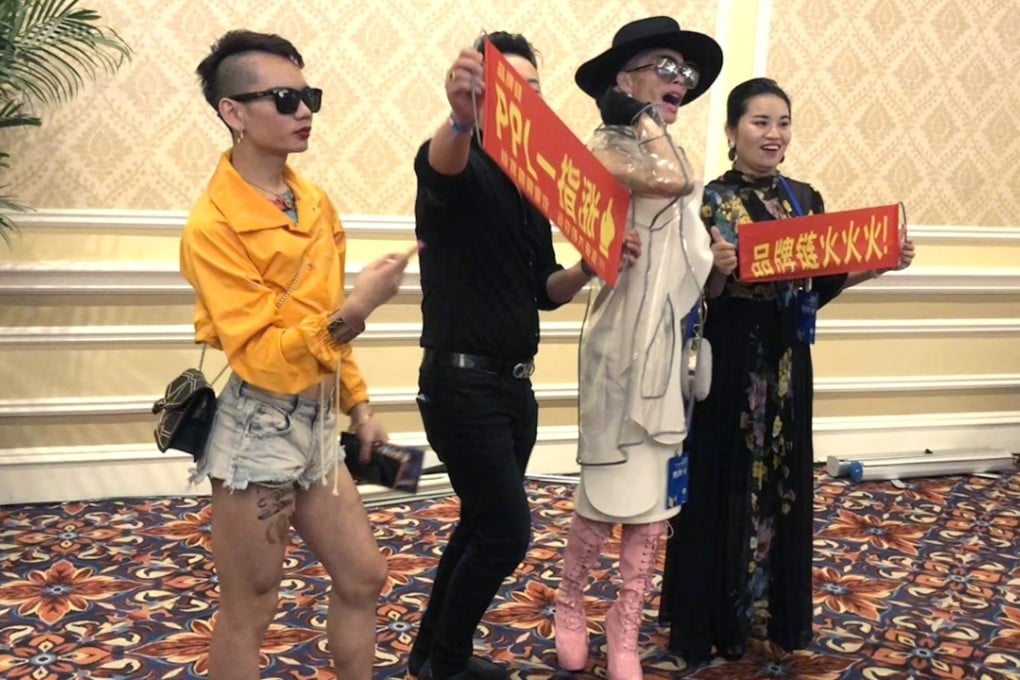Welcome to China’s wild, wild world of blockchain investment
Businesses of all kinds are hitching their marketing to the technology bandwagon but it’s not always clear what they’re offering

The room was only a third full but the two cross-dressing cheerleaders touted their product as if they were playing to a capacity crowd.
“Brand-Chain, hot, hot, hot!” they shouted, holding up banners at a Macau casino hosting a three-day conference on the tech phenomena that is blockchain.
Nearby, a group of older Chinese women snapped photos of the two men – one dressed in hot pants and gold high-heeled shoes, and the other in a plastic dress and pink boots – before the cheerleaders were sent packing by security.
The performers were helping promote a food company looking for retail investors in its blockchain product.
The company was one of dozens trying to attract backers for their offerings at the World Blockchain Conference 3 AM Summit last week.